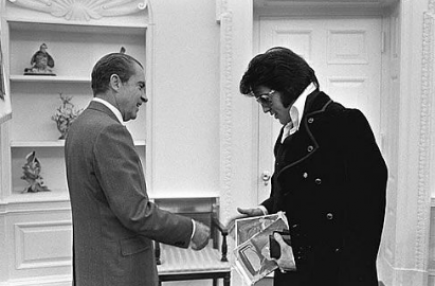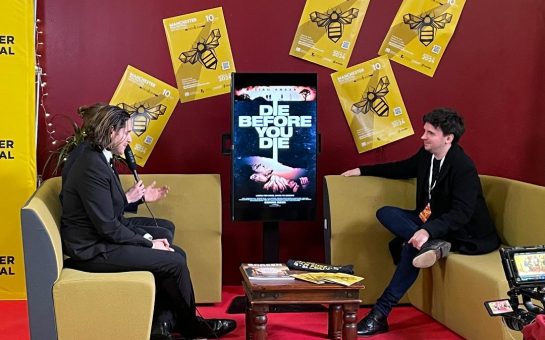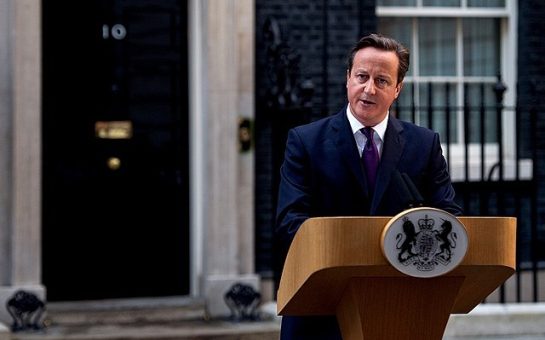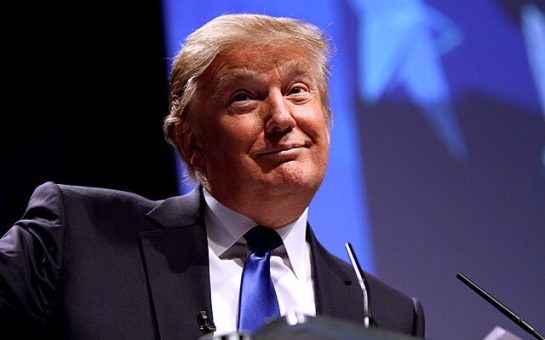“It’s not a documentary about Elvis and it’s not a biopic,” dismisses Eugene Jarecki – the director and co-writer of The King, a film that chronicles the rise and fall of Elvis Presley.
“It’s decidedly a movie about a man and his country,” Jarecki explains, swatting away the notion that his documentary is a conventional catalogue of the rock star’s life.
“America herself has risen and fallen like Elvis. America was young once and we had some beauty and rose because of that beauty. We took over the world at a time very similar to when Elvis did – where suddenly he was an adolescent with the whole world in his hands.
“America found herself a very young nation suddenly possessed with unimaginable power and like Elvis we didn’t know how to handle it. Elvis reached out for all manners of quick fixes to try and self-medicate just as we do.
“We are the most addicted nation in history. He reached out for drugs, carbohydrates, vanity, violence, consumption…and so did we. I think in that he is the reflection of the naiveté of the American people within that saga.”
The King utilizes Elvis’ extravagant yet tragic life as an extended metaphor for the current state of America.
The producers and financiers of the film purchased Elvis’ lavish 1963 Rolls Royce and Jarecki set out on all-American road trip, visiting and exploring milestones of Elvis’ life.
Joining Jarecki on the trip are a host of musicians, friends and associates of the King and celebrity fans. The celebrities he interviews include Ashton Kutcher, Ethan Hawke, Mike Myers, Alec Baldwin and Chuck D.
.@POVMagazine calls THE KING “a brilliantly original music doc that deconstructs the decline of the America empire through one of its greatest icons.”
See it in 45+ theaters nationwide today! Trailer/tickets: https://t.co/c3KctBGKlg pic.twitter.com/7B5Y9CSfly
— THE KING (@THEKINGthemovie) July 23, 2018
The film cuts between this road trip, to historical footage and to one-on-one interviews.
Initially, the American filmmaker appears a non-threatening figure. He is the image of a Yankee Jewish stereotype: short unassuming stature, bespectacled with pale skin and dark speckled grey curly hair.
Nevertheless, there is fiery provocative quality to the way he speaks. His speech is trigger fast, densely layered with his complex ideas that unravel like a Pandora’s box – but he’s considered and calculated in his response, at one point stopping the interview and asking if he was talking too much.
“I can give shorter answers,” he informs pointedly.
‘JUST LIKE BRANDING HAMBURGERS’ – JARECKI ON THE AMERICAN DREAM
At this point in his career, Jarecki is an acclaimed veteran of documentary filmmaking – winning the Emmy and Peabody awards.
His past titles include The Trials of Henry Kissinger (2002), Why We Fight (2005), Reagan (2011) and The House I Live In (2012). His career has a political theme, he has targeted meaty subjects that span infamous politicians, war crimes and the war on drugs.
His trademark style is to turn the camera on interview subjects to propel his stories and (more significantly) his message forward.
Jarecki references the art of cinéma vérité in his approach to filmmaking, expounding on why he avoids opining on his films.
“The structuring of the film, the selection of the subject, the defining of the route, the invitation to various participants – in all of that my voice exists as a kind of curator of other people’s experiences.”

In The King it seems Jarecki has chosen a lighter, more media friendly subject within Elvis as the fulcrum to his political message.
He cites Werner Herzog’s theory of the ‘ecstatic truth’ as a key influencer. A truth that lies deeper than mere facts, figures, events and place names (the accountant’s truth).
This deeper truth lies within the imagery of Elvis’ life as a cautionary tale: “This is deeply a movie about where we are headed in the world, about what went wrong and how the hell we got here.”
The film exemplifies and skewers the American dream through Elvis’ upbringing.
It begins by showing the King’s humble roots in Memphis, Tennessee where he grew-up on a farm and discovered gospel music; the supernova success of his early stardom, the first of his kind – where he appropriated the black music to white mainstream audiences; the all-American poster child, travelling to Germany as a US Soldier – where he experienced the tragic death of his mother and initial forays in to prescription medication; a more regal stage of his life in the 60s where he signed a Faustian movie deal that resulted in making movies that he hated; and finally the 70s where he entered Vegas, got fat, hooked on prescription drugs and fell dead off the toilet at the tragic age of 42.
Elvis is painted as a naïve figure who was led astray by his manager Colonel Tom Parker in to following big money deals over creative fulfilment. There’s a cognitive dissonance in Elvis’ apparent success of the American Dream.
Filmmaker @EugeneJarecki traces #Elvis Presley’s meteoric rise and tragic fall, showing how it figures into our readings of the American Dream | Hear more: https://t.co/6WH8X4Rouo pic.twitter.com/YUMXHltvwd
— q (@cbcradioq) July 18, 2018
What’s more, Jarecki defines the American Dream as a hijacking of a global desire, a desire to be judged for one’s own merits and to be “catapulted” to the highest levels of opportunity.
“We branded a global phenomenon just like we branded hamburgers and frankfurters…From Day One, it was drenched in the blood of the native peoples.
“Then it was built on the backs of the black slaves. Then the ‘American Dream’ wasn’t available to everyone, it was available to white men. It was available to you if you were like Elvis Presley.
“That isn’t to take away from Elvis, he was a majestic beautiful figure – that’s why we are talking about him. But it was possible for his talents to shine when other people didn’t get the chance.”
‘THE DISH RUNNING AWAY WITH THE SPOON’ – JARECKI ON TRUMP (AND BREXIT)
Moreover, Jarecki’s film doesn’t merely provide commentary on the racial inequality of the past. He reflects on how these issues have rippled into the latter-day, polluting the current political and societal landscape.
He slams 1980s Prime Minister Margaret Thatcher and President Ronald Reagan for conning “the world in to thinking deregulating corporations so they will inherit the earth and not the meek,” which he coins as “anti-Christian, anti-biblical, anti-democratic manoeuvres.”
Furthermore, he believes these manoeuvres have led to the rise of figures like President Donald Trump and Amazon chief Jeff Bezos. Since the system was de-regulated, such figures “can destabilize the health, safety, welfare and security of millions and millions of people and that in my view is antagonistic to the reason democracy evolved.”
On the subject of Trump, Jarecki believes that the direction Trump’s fortunes turn will be indicative of the state of democracy.
He predicts that if this flash businessman – who rose to the oval office through his power, wealth, fear mongering – were to be thrown out of the oval office, every newspaper would write “You’re fired!” on the front page.
He believes that event “would be poetry on behalf of democracy”. However, if Trump were to “prevail through all the crookery then you have real problem for democracy,” it would prove that “the vulnerable can be gamed through invulnerable pernicious actors.”
In light of Brexit, Jarecki believes Britain has been swept up by the same form of scare-mongering propaganda that propelled Trump.
He regards Brexit as “horrendous anomaly” in a noble history. Nevertheless, he concedes that the European Union as an organisation has also succumbed to the perils of capitalism.
“I think the European experiment is woefully misguided and in need of repair.”
Jarecki extrapolated that the UK should have attempted to have improved it from the inside. He believed the “warped decision” to leave came about due to the social disparity between the wealth of London and other parts of the country, resulting in a general public desperate for change.
Like the situation with Trump, which he describes as “the dish running away with the spoon” – he characterises the countries as being like abuse victims who ran away with the next person who walked through the door.

Jarecki also gave his thoughts about the destruction of the American Dream.
“The American illusion is a beautiful thing, it embodies the hopes and dreams of the world. Except it was taken to a capitalistic corporate-overly-expressed extreme and in doing so threw the baby out with the bathwater, like it chewed up and destroyed Elvis.”
After The King was completed, the production company sold Elvis’ Rolls Royce to the Seminole Indian Nation of the State of Florida, the owners of the failed Trump Taj Mahal Casino.
The car currently sits as centrepiece in the new Hard Rock Hotel and Casino in Atlantic City, it will live out its days to the “ching-ching-cling-cling of the slot machines,” forever a source of entertainment for the wide eyed punters.
In UK cinemas since August 24, to see The King trailer click here.



